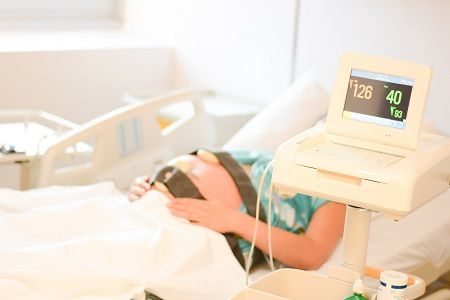Article
Predicting Postpartum Depression Based on Labor Pain
Author(s):
Brave women who forego epidural anesthesia might not be doing themselves any favors when it comes to their risk of postpartum depression.

Brave women who forego epidural anesthesia might not be doing themselves any favors when it comes to their risk of postpartum depression. Labor pain severity may be able to predict depressive symptoms after giving birth, according to a study presented at the Anesthesiology 2016 annual meeting in Chicago, Illinois.
“Postpartum depression can develop from a number of things, including hormonal changes, psychological adjustment to motherhood, social support, and a history of psychiatric disorders,” lead investigator, Grace Lim, MD, director of obstetric anesthesiology at Magee Women’s Hospital of the University of Pittsburgh Medical Center, said in a news release.
Researchers evaluated medical records from 201 women who had given birth. All of the participants had epidural analgesia and reported their pain during labor on a zero to 10 scale. Their pain was assessed before and after the epidural and the percent improvement in pain (PIP) module calculated relief over time. Six weeks following childbirth, the women’s depression risk was measured using the Edinburgh Postnatal Depression Scale (EPDS).
After controlling for other factors that are known to increase the risk of postpartum depression — such as pre-existing depression and anxiety – the findings indicated that women with higher PIP scores had lower EPDS scores. This means that labor pain matters beyond the birthing process.
“It may be psychologically harmful for some women and play a significant role in the development of postpartum depression,” Lim explained. “We found that certain women who experience good pain relief from epidural analgesia are less likely to exhibit depressive symptoms in the postpartum period.”
These results are preliminary, Lim advised, and labor pain may impact some women’s psychological outcomes more than others. “Although we found an association between women who experience less pain during labor and lower risk for postpartum depression, we do not know if effective pain control with epidural analgesia will assure avoidance of the condition,” she said.
Related Coverage:
Younger Women Have a Higher Risk of Pregnancy-Associated Stroke
Will IVF Be Successful? Check Stress Hormone Levels in Hair
Project Aims to ‘Spark’ Conversation on Female Sexual Dysfunction





